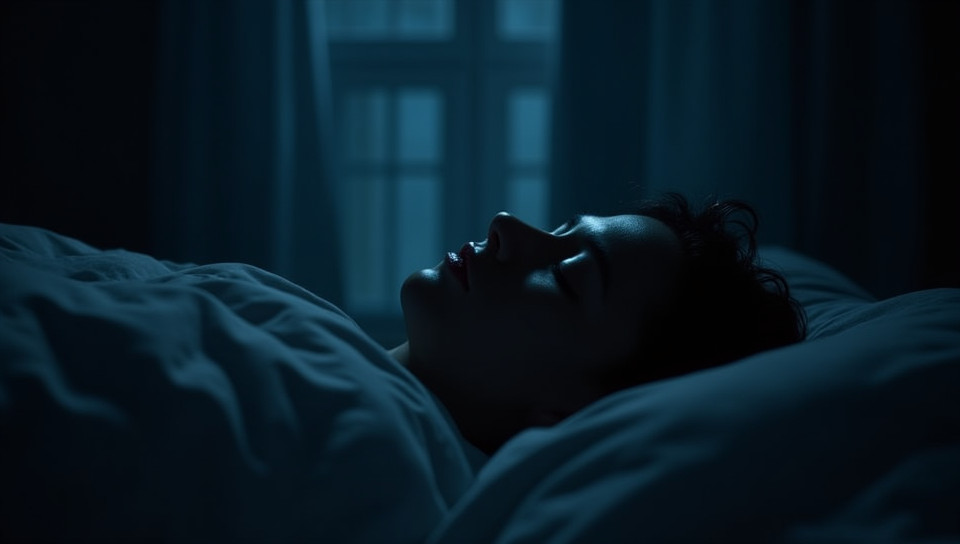Darkness increases melatonin production 62%

The Power of Darkness: Unlocking the Secrets of Melatonin Production
As we navigate our increasingly digital lives, it's easy to forget that our bodies are wired to respond to the natural world around us. From the rise and fall of the sun to the changing seasons, our internal rhythms are influenced by a complex interplay of light and darkness. But have you ever stopped to think about how darkness affects your body? Specifically, how does it impact the production of melatonin, the hormone that regulates our sleep-wake cycles?
The Importance of Melatonin
Melatonin is often referred to as the "sleep hormone" because it plays a crucial role in regulating our circadian rhythms. Produced by the pineal gland, a small endocrine gland located in the brain, melatonin levels typically rise in the evening and fall in the morning. This natural cycle helps us feel sleepy at night and awake during the day.
The Role of Darkness in Melatonin Production
But what triggers this increase in melatonin production? Research has shown that darkness is a key factor. When our eyes detect the absence of light, it sends a signal to the suprachiasmatic nucleus (SCN), the part of the brain responsible for regulating our circadian rhythms. The SCN then responds by sending a signal to the pineal gland to produce melatonin.
How Darkness Affects Melatonin Production
So how exactly does darkness increase melatonin production? Here are some key points to consider: - Reduced exposure to blue light, which can suppress melatonin production - Increased sensitivity to darkness, allowing the SCN to detect even small changes in lighting conditions - Activation of the parasympathetic nervous system, which promotes relaxation and reduces stress
The Consequences of Disrupted Melatonin Production
When our melatonin production is disrupted, it can have serious consequences for our health and well-being. Insomnia, fatigue, and mood disorders are all linked to irregular melatonin levels. By understanding the role of darkness in melatonin production, we can take steps to protect our natural sleep-wake cycles.
Conclusion
In conclusion, darkness plays a critical role in increasing melatonin production. By embracing the power of darkness and allowing our bodies to respond naturally to the light-dark cycle, we can promote healthier sleep patterns and improve overall well-being. So next time you're tempted to stay up late scrolling through your phone, remember the importance of darkness in regulating your body's internal rhythms.
- Created by: Diego Carrillo
- Created at: Oct. 13, 2024, 8:10 p.m.
- ID: 12494









